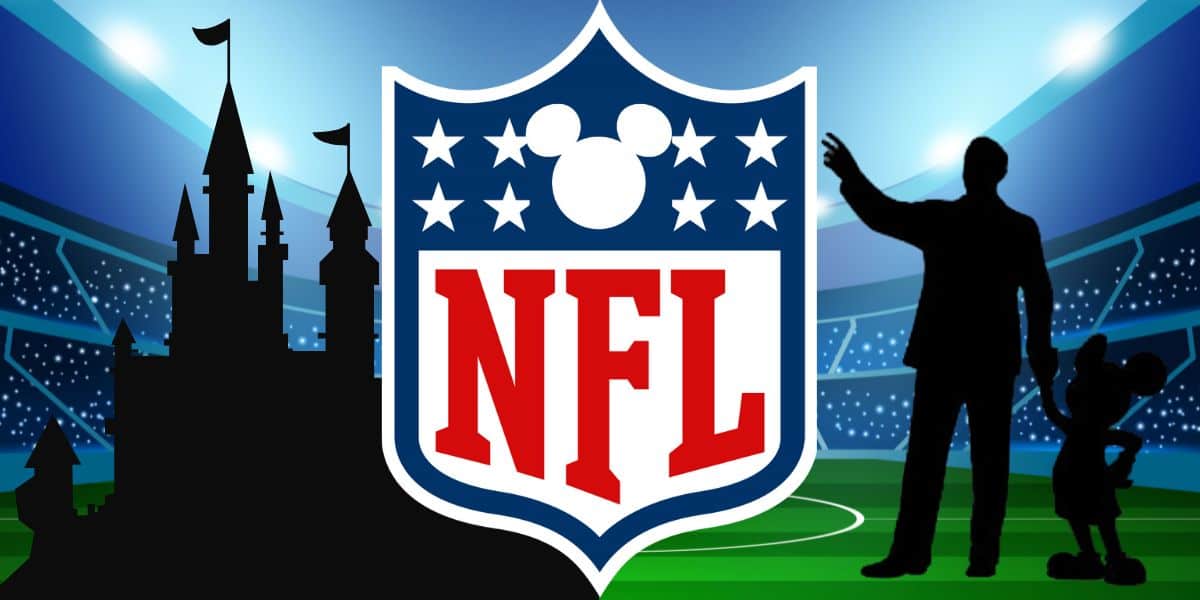Settlement with Gina Carano Could Clear Path for Disney’s NFL/ESPN Partnership
Settlement Details and Implications
The recent settlement between Disney and Gina Carano marks a significant turnaround in the ongoing Disney lawsuit that began after Carano was fired from her role in The Mandalorian. The actress sparked controversy by comparing Republicans to Jewish people in Nazi Germany. Following her dismissal, Carano filed a lawsuit claiming that Disney had a biased double standard, as her co-star, Pedro Pascal, made controversial comments likening Donald Trump to Adolf Hitler, yet faced no repercussions.

Under the settlement terms, Carano reportedly received a substantial financial payout, though exact figures remain undisclosed. Insiders suggest that the resolution aims to mitigate any reputational damage Disney might face during ongoing negotiations, particularly concerning its recently struck ESPN/NFL deal. Analysts agree that this settlement could prevent potential embarrassment during the discovery phase, where internal communications might otherwise have been examined publicly.
This turn of events could spark mixed reactions among fans and industry insiders, especially considering that Disney’s actions regarding Carano had drawn widespread scrutiny. The settlement illustrates Disney’s willingness to promptly address legal issues and focus on more pressing business matters, particularly those involving significant financial stakes.
Timing of the Settlement
The timing of the settlement appears calculated, coinciding closely with Disney’s recent announcement of an extensive ESPN/NFL deal. This arrangement includes purchasing the NFL Network and the NFL’s Red Zone channel, while giving the NFL a 10 percent stake in ESPN. This strategic move positions Disney at a key crossroads in the sports media world.

The deal attracted regulatory attention almost immediately, prompting investigations from Trump’s Federal Communications Commission. Reports indicate that this scrutiny could complicate the approval process. With the stakes escalating, resolving the Gina Carano lawsuit is a tactical maneuver for Disney, clearing the path toward smoother regulatory interactions.
Industry sources revealed that external factors heavily influenced Disney’s settlement choice. By settling with Carano, Disney likely aims to showcase a unified front and avoid generating negative press during a sensitive period. With the potential for regulatory delays looming, the company seizes the opportunity to mitigate risks associated with the Disney lawsuit.
Impact on Disney’s Strategy
The successful negotiation of the ESPN/NFL partnership will strengthen Disney’s foothold in the competitive sports broadcasting landscape. By integrating more NFL content, Disney can bolster its streaming service, which is preparing for a major launch. In an era where sports streaming rights become increasingly valuable, this deal positions Disney advantageously against its competitors.

Establishing solid relationships with influential figures also plays a vital role in Disney’s strategy. The recent settlement with Carano also speaks volumes about Disney’s importance in appeasing key industry players. Given the interconnectedness of the political and entertainment worlds, managing relationships with figures such as Donald Trump can enhance the probability of regulatory approvals for significant deals, like the ESPN/NFL arrangement.
Additionally, the settlement could signal a shift towards greater corporate sensitivity and responsiveness within Hollywood. Disney’s actions resonate with other high-profile cases, further suggesting that the entertainment ecosystem is increasingly cognizant of celebrity movements’ political ramifications.
Broader Industry Reactions
Fans and industry experts have responded to the settlement in mixed ways. Some supporters of Carano view the resolution as an affirmation of her stance against political persecution in Hollywood. Critics, however, argue that this settlement reinforces a troubling pattern of corporations prioritizing profits over principles.

Comparisons arise with other celebrity lawsuits where public figures successfully navigated corporate dilemmas. For example, cases involving actors or directors facing controversy have often ended in settlements, leading observers to question the relevance of fair treatment versus strategic expediency.
Moreover, the Carano situation is a launchpad for conversations surrounding Hollywood’s political culture. The context in which Disney settled its lawsuit reflects broader industry tensions, demonstrating how political affiliations and corporate interests can intertwine in complex ways. This landscape is further complicated by leaders like Donald Trump continuing to influence corporate behavior, often in unexpected domains.
As the entertainment industry continues evolving, the implications of Disney’s recent settlement with Carano will undoubtedly shape future discussions of talent management, corporate ethics, and the fusion of politics and entertainment.





